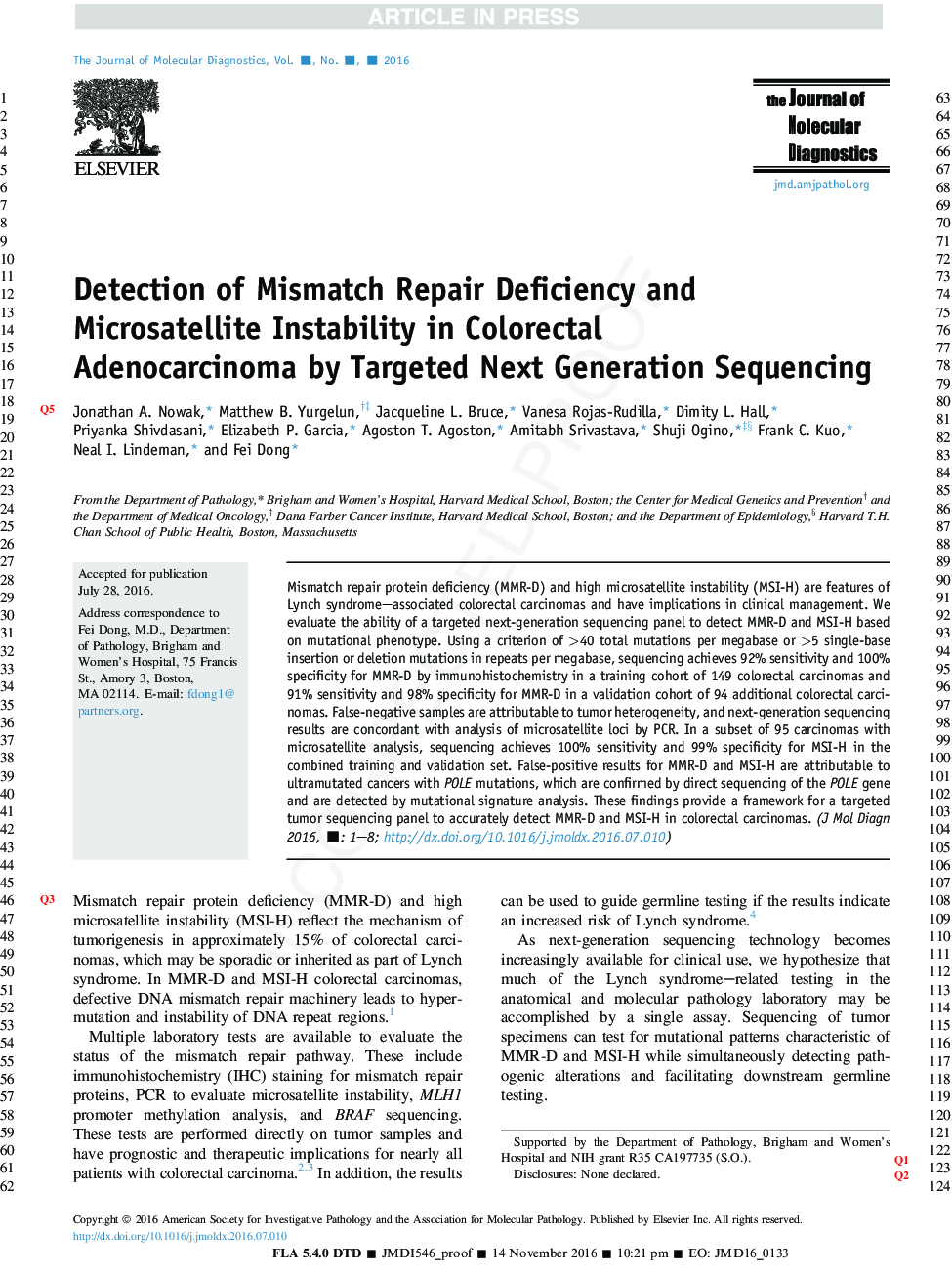| کد مقاله | کد نشریه | سال انتشار | مقاله انگلیسی | نسخه تمام متن |
|---|---|---|---|---|
| 5662998 | 1590583 | 2017 | 8 صفحه PDF | دانلود رایگان |
عنوان انگلیسی مقاله ISI
Detection of Mismatch Repair Deficiency and Microsatellite Instability in Colorectal Adenocarcinoma by Targeted Next-Generation Sequencing
ترجمه فارسی عنوان
تشخیص نقص کمبود نقص و ناپایداری میکروسلایتال در آدنوکارسینوم کولورکتال با توالی های نسل بعد
دانلود مقاله + سفارش ترجمه
دانلود مقاله ISI انگلیسی
رایگان برای ایرانیان
موضوعات مرتبط
علوم پزشکی و سلامت
پزشکی و دندانپزشکی
انفورماتیک سلامت
چکیده انگلیسی
Mismatch repair protein deficiency (MMR-D) and high microsatellite instability (MSI-H) are features of Lynch syndrome-associated colorectal carcinomas and have implications in clinical management. We evaluate the ability of a targeted next-generation sequencing panel to detect MMR-D and MSI-H based on mutational phenotype. Using a criterion of >40 total mutations per megabase or >5 single-base insertion or deletion mutations in repeats per megabase, sequencing achieves 92% sensitivity and 100% specificity for MMR-D by immunohistochemistry in a training cohort of 149 colorectal carcinomas and 91% sensitivity and 98% specificity for MMR-D in a validation cohort of 94 additional colorectal carcinomas. False-negative samples are attributable to tumor heterogeneity, and next-generation sequencing results are concordant with analysis of microsatellite loci by PCR. In a subset of 95 carcinomas with microsatellite analysis, sequencing achieves 100% sensitivity and 99% specificity for MSI-H in the combined training and validation set. False-positive results for MMR-D and MSI-H are attributable to ultramutated cancers with POLE mutations, which are confirmed by direct sequencing of the POLE gene and are detected by mutational signature analysis. These findings provide a framework for a targeted tumor sequencing panel to accurately detect MMR-D and MSI-H in colorectal carcinomas.
ناشر
Database: Elsevier - ScienceDirect (ساینس دایرکت)
Journal: The Journal of Molecular Diagnostics - Volume 19, Issue 1, January 2017, Pages 84-91
Journal: The Journal of Molecular Diagnostics - Volume 19, Issue 1, January 2017, Pages 84-91
نویسندگان
Jonathan A. Nowak, Matthew B. Yurgelun, Jacqueline L. Bruce, Vanesa Rojas-Rudilla, Dimity L. Hall, Priyanka Shivdasani, Elizabeth P. Garcia, Agoston T. Agoston, Amitabh Srivastava, Shuji Ogino, Frank C. Kuo, Neal I. Lindeman, Fei Dong,
